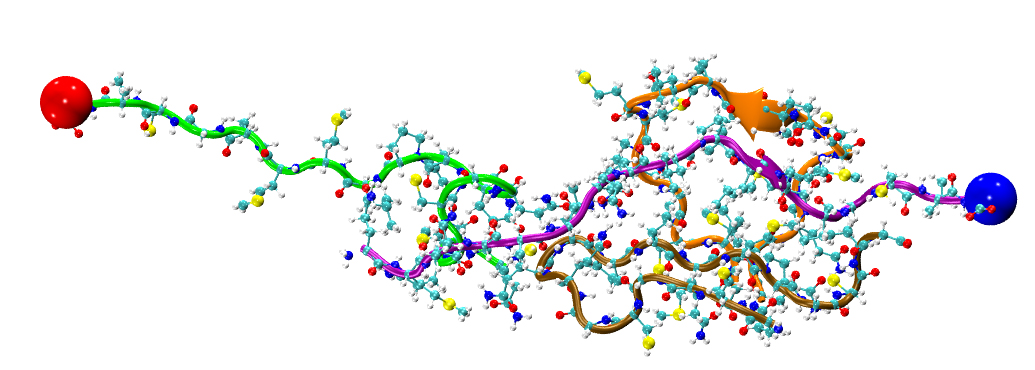Extremely elastic proteins

The ultimate properties of proteins with respect to their ability to be force-reactive, are coarsely described by their capacity to withstand or transmit sensed force. Some proteins are able to be extremely elastic, storing potential energy and releasing it in the form of kinetic energy. One of the proteins sharing this functionality is Cnidoin, an intrinsically disordered protein that composes the nematocysts, explosive organelles of metazoans useful for self-defense and preying. By sensing the behaviour of the protein upon the application of external forces, molecular dynamics simulations interfaced to experiments will provide an understanding of the relations between the sequence of Cnidoin and its ability to appear as extremely elastic and fulfil its function. Ultimately, such an understanding will, on one side, provide the mechanism of nematocysts’ discharge and, on the other, will open new scenarios about the possibility of employing cnidoin’s elasticity for the development of new materials.
About HITS
HITS, the Heidelberg Institute for Theoretical Studies, was established in 2010 by physicist and SAP co-founder Klaus Tschira (1940-2015) and the Klaus Tschira Foundation as a private, non-profit research institute. HITS conducts basic research in the natural, mathematical, and computer sciences. Major research directions include complex simulations across scales, making sense of data, and enabling science via computational research. Application areas range from molecular biology to astrophysics. An essential characteristic of the Institute is interdisciplinarity, implemented in numerous cross-group and cross-disciplinary projects. The base funding of HITS is provided by the Klaus Tschira Foundation.